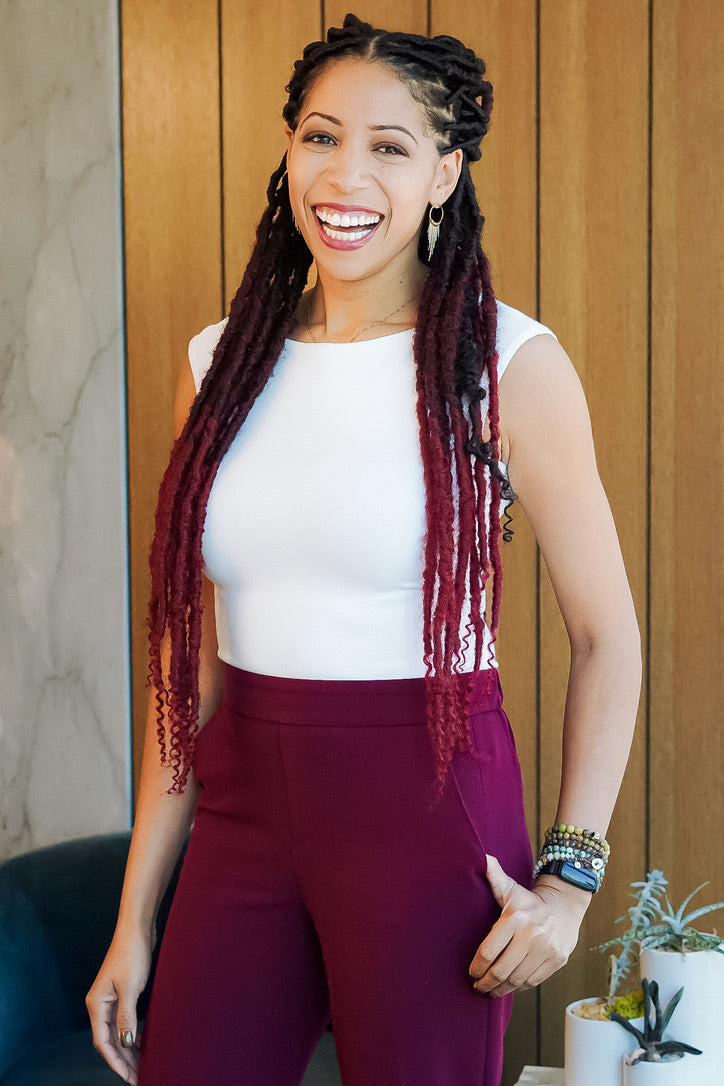
Well, here we are — the third week of January. How are those New Year’s resolutions holding up? Still crushing them? Or have they quietly slipped into the abyss of “maybe next year”?
Don’t worry — you’re not alone. Resolutions can feel like that friend who’s all in at the start of a group project, then ghosts halfway through.
Inherently, that’s not a problem. That’s life. As people, we don’t always do what we say we’re going to do. In a perfect world, we’d re-evaluate, plan, and start again. But when we don’t follow through on something that matters deeply to us, we tend to internalize it. We make our inconsistencies and difficulties a reflection of who we are on the inside. And it tends to color our understanding of who we think we are and what we think is possible for our lives.
Here’s the truth: resolutions don’t stick for most people. In fact, studies show that nearly 80% of New Year’s resolutions fail by mid-February. But that doesn’t mean you’re doomed to stagnation. What if, instead of rigid resolutions, you focused on setting intentions that align with your values and guide your actions throughout the year?
Let’s explore why resolutions often don’t work and how a shift toward intentional living can set you up for success — no matter what the year throws your way.
Why Resolutions Don’t Stick
Traditional resolutions often fail because they focus on rigid outcomes rather than flexible, meaningful progress. Here’s why they tend to crumble:
1. Unrealistic Expectations
Resolutions often come with a “go big or go home” mindset. We want to change our entire life overnight, so we take on huge goals across a broad scope. Part of that is psychology at work. Big goals help us visualize the potential of big changes, and the possibility of that feels energizing. But while ambitious goals can feel exciting, they also create unnecessary pressure. So when we fall short, it’s easy to feel like we’ve failed entirely.
2. Specificity
Saying “I want to be healthier” is a great idea, but what does that actually mean? Without clear steps, resolutions become wishful thinking rather than actionable plans. On the other hand, being too specific can actually work against us as well. If we define being healthier as “cutting out all sugar,” we don’t leave room for all the other ways we can make progress toward our goals.
3. Life’s Curveballs
When life throws you a curveball (and let’s be honest, it always does) intentions help you bounce back without feeling like you’ve blown it entirely. Maybe you vowed to eat kale salads every day, but then you find yourself in an airport with zero kale in sight. Or you planned to work out at 6 a.m. daily, but your kids caught the flu. Resolutions often don’t account for life’s unpredictability, leaving us feeling defeated when circumstances get in the way. Often, it then becomes easier to give up on the resolution entirely.
4. Outcome-Focused Thinking
Resolutions tend to obsess over results (e.g., “lose 10 pounds”) rather than the journey. When the results don’t come fast enough, motivation fizzles out. And there’s often the underwhelming reality of the results themselves. We set these targets based on how we think they’ll make us feel when they manifest. And when that doesn’t happen, we can lose sight of the transformation that this goal represented when we first set it.
5. Not Understanding Existing Habits
Lasting change isn’t about flipping a switch. It’s about addressing the beliefs and behaviors that led to your current patterns. Without tackling the root cause, new habits struggle to take hold. But if the root habits serve a purpose in your life (that is, they serve an even deeper need) you may find them to be stickier than you thought.
The Power of Intentions
So, what’s the alternative? Intentions. Unlike resolutions, intentions are rooted in your values. They focus on the process and the ways of being that you want to cultivate, and are more flexible about the means and outcomes. Intentions provide a flexible roadmap, allowing you to adapt to life’s inevitable twists and turns.
For example:
- A resolution might be, “I’ll meditate for 20 minutes every day.”
- An intention might be, “I’ll create intentional space for mindfulness in my daily life.”
See the difference? The resolution demands perfection. The intention leaves room for life to happen while still guiding your actions.
How to Shift from Resolutions to Intentions
1. Reflect on What Matters to You
Start by identifying your core values. Is it health, connection, growth, creativity, or something else? What brings meaning to your life? Write down your top three values as a foundation for your intentions.
2. Dig Into the ‘Why’ Behind Your Goals
What’s the deeper reason you want to achieve your resolution? If your goal is to “get fit,” is it because you want to feel more energized, or because you value taking care of your body? Clarifying your “why” helps you create intentions that truly resonate. It also opens possibilities around how to fulfill them.
3. Turn Resolutions Into Intentions
Transform rigid goals into flexible, value-driven intentions. Instead of “I’ll save $10,000 this year,” try “I intend to cultivate financial security and make mindful choices with my money.”
Of course, that doesn’t mean that you can’t have milestones. But it means that you recognize the milestones as signs that you’re on the right path — not as the destination itself.
4. Have a Plan for Setbacks
Life happens — and that’s okay. Decide in advance how you’ll respond when obstacles arise. If you miss a day (or a week), remind yourself it’s not a failure — and neither are you. Setbacks represent an opportunity to recommit and re-evaluate.
5. Take Small, Consistent Steps
Practices — small, intentional habits — reinforce alignment with the life you’re cultivating. For instance, if your intention is to nourish your body, start by adding one serving of vegetables to your meals instead of overhauling your entire diet overnight. Leave your vitamins where you’ll see them every day. Practices help align your daily actions with the life you’re cultivating.
The Benefits of Living Intentionally
Living with intention is a game-changer. Instead of feeling trapped by rigid goals, you’re free to embrace the process and adapt as needed. This approach fosters:
- Sustainable Change: Intentions focus on consistent progress, not perfection. Over time, small steps add up to meaningful transformation.
- Increased Resilience: When life throws a curveball, intentions provide flexibility, allowing you to stay aligned with your values without throwing in the towel.
- Greater Fulfillment: Aligning your actions with your values creates a deeper sense of purpose and satisfaction, even if the results aren’t immediate.
Embracing an Intentional Life
So, how do you feel about giving yourself permission to ditch the “New Year, new me” mindset? With intentions, there’s no expiration date. There’s just an ongoing invitation to grow, evolve, and live in alignment with what truly matters to you.
After all, life isn’t about being perfect. It’s about being present. It’s about showing up for yourself, even when things don’t go as planned.
Here’s your challenge: take five minutes today to reflect on one value that’s important to you. Write it down and create a simple intention based on that value. Bonus points if you stick it on your fridge, bathroom mirror, or save it as your phone background.
No matter what the calendar says, it’s never too late to set an intention and start fresh. After all, it’s not about how you begin the year — it’s about how you live it.






